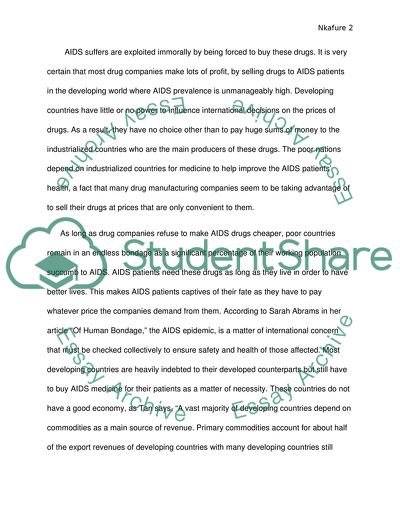Cite this document
(AIDS Drugs for Developing Countries Essay Example | Topics and Well Written Essays - 1250 words, n.d.)
AIDS Drugs for Developing Countries Essay Example | Topics and Well Written Essays - 1250 words. https://studentshare.org/health-sciences-medicine/1764497-should-aids-drugs-be-made-cheaper-for-developing-countries
AIDS Drugs for Developing Countries Essay Example | Topics and Well Written Essays - 1250 words. https://studentshare.org/health-sciences-medicine/1764497-should-aids-drugs-be-made-cheaper-for-developing-countries
(AIDS Drugs for Developing Countries Essay Example | Topics and Well Written Essays - 1250 Words)
AIDS Drugs for Developing Countries Essay Example | Topics and Well Written Essays - 1250 Words. https://studentshare.org/health-sciences-medicine/1764497-should-aids-drugs-be-made-cheaper-for-developing-countries.
AIDS Drugs for Developing Countries Essay Example | Topics and Well Written Essays - 1250 Words. https://studentshare.org/health-sciences-medicine/1764497-should-aids-drugs-be-made-cheaper-for-developing-countries.
“AIDS Drugs for Developing Countries Essay Example | Topics and Well Written Essays - 1250 Words”. https://studentshare.org/health-sciences-medicine/1764497-should-aids-drugs-be-made-cheaper-for-developing-countries.


